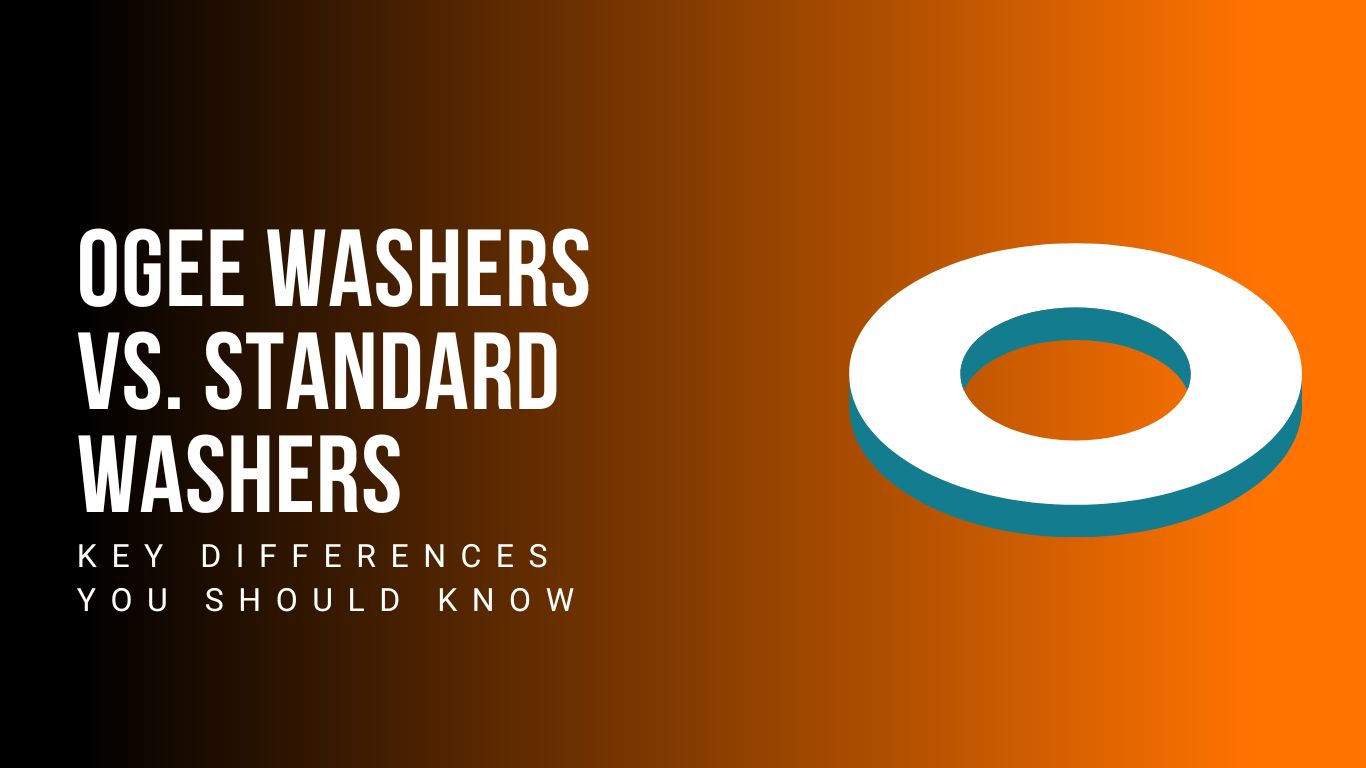
When it comes to construction, engineering, or heavy-duty projects, washers play a crucial role in distributing loads, reducing friction, and enhancing bolt security. Two types of washers often compared are ogee washers and standard washers. But what sets them apart, and how do you decide which one is the right fit for your project?
IIn this guide, I’ll break down everything you need to know about ogee washers and standard washers—their key features, applications, benefits, and differences. By the end, you’ll have all the information you need to make an informed choice.
Let’s dive in!
Ogee washers are thick, heavy-duty washers with a curved or ogee-shaped design. Their distinctive shape allows them to distribute weight evenly over a larger surface area, which is particularly useful in construction and infrastructure projects.
Key Features of Ogee Washers
If you’ve worked with j type foundation bolts, foundation j bolts, or u bolts manufacturers, you’ve likely seen ogee washers in action, ensuring strong and stable load-bearing.
Standard washers, also called flat washers, are the most common type of washer used in a variety of applications. They are thin, flat, and circular with a central hole for a bolt or screw.
Key Features of Standard Washers
You’ll see standard washers everywhere—from household repairs to automotive and industrial uses. Shim washers or machined washers are often used in conjunction with standard washers for precision tasks.

Here’s a quick breakdown of the main differences between the two:
| Feature | Ogee Washers | Standard Washers |
|---|---|---|
| Design | Curved, thick, and heavy-duty | Flat, thin, and lightweight |
| Load Distribution | Excellent for heavy loads | Moderate load distribution |
| Material | Steel, stainless steel, or cast iron | Multiple options: steel, plastic, etc. |
| Applications | Construction, timber, heavy projects | General-purpose, light-duty use |
| Cost | Slightly more expensive | Generally more affordable |
As you can see, ogee washers excel in heavy-duty scenarios, whereas standard washers are ideal for lighter, everyday tasks.
You should consider using ogee washerss when:
For example, in timber construction projects, ogee washers are paired with foundation bolts to ensure a secure and stable connection.

Standard washers are perfect for:
For example, if you’re assembling furniture or repairing a car engine, standard washers are the go-to choice.

If you’re wondering why ogee washers are so popular in construction, here’s a list of benefits:
By choosing ogee washers, you enhance the safety, stability, and durability of your projects.
On the other hand, standard washers come with their own advantages:
Whether you’re working with foundation bolts, u-bolts, anchor bolts, or standard screws, flat washers get the job done efficiently.
When selecting betweenogee washers and standard washers, keep these factors in mind:
By evaluating your project’s requirements, you’ll make the right choice.
When comparing ogee washers vs. standard washers, it ultimately comes down to the type of application and load requirements. If you’re working on a heavy-duty construction project or need excellent load distribution, ogee washers are the way to go. On the other hand, for lighter, general-purpose tasks, standard washers are reliable, versatile, and budget-friendly.
Remember: choosing the right washer makes a big difference in the stability, safety, and longevity of your project. Whether you’re using foundation bolts, u-bolts, or anchor bolts, washers play a critical role in creating secure connections.
Our range of shims includes metal, machine, industrial, precision, adjustable, machinery, engineering, custom, and alignment shims. These shims are designed for various applications, such as machinery alignment, fine adjustments in industrial-grade machines, engineering projects requiring steel shims, heavy-duty machinery requiring versatile metal shims, aerospace applications demanding precision stainless steel shims, automotive use requiring adjustable aluminum shims, precision engineering projects using high-quality brass shims, construction applications requiring durable plastic shims, specialized machinery needing customized shim solutions, and manufacturing processes requiring fine-tuning shims for precise alignment and accurate machine setup and leveling.



